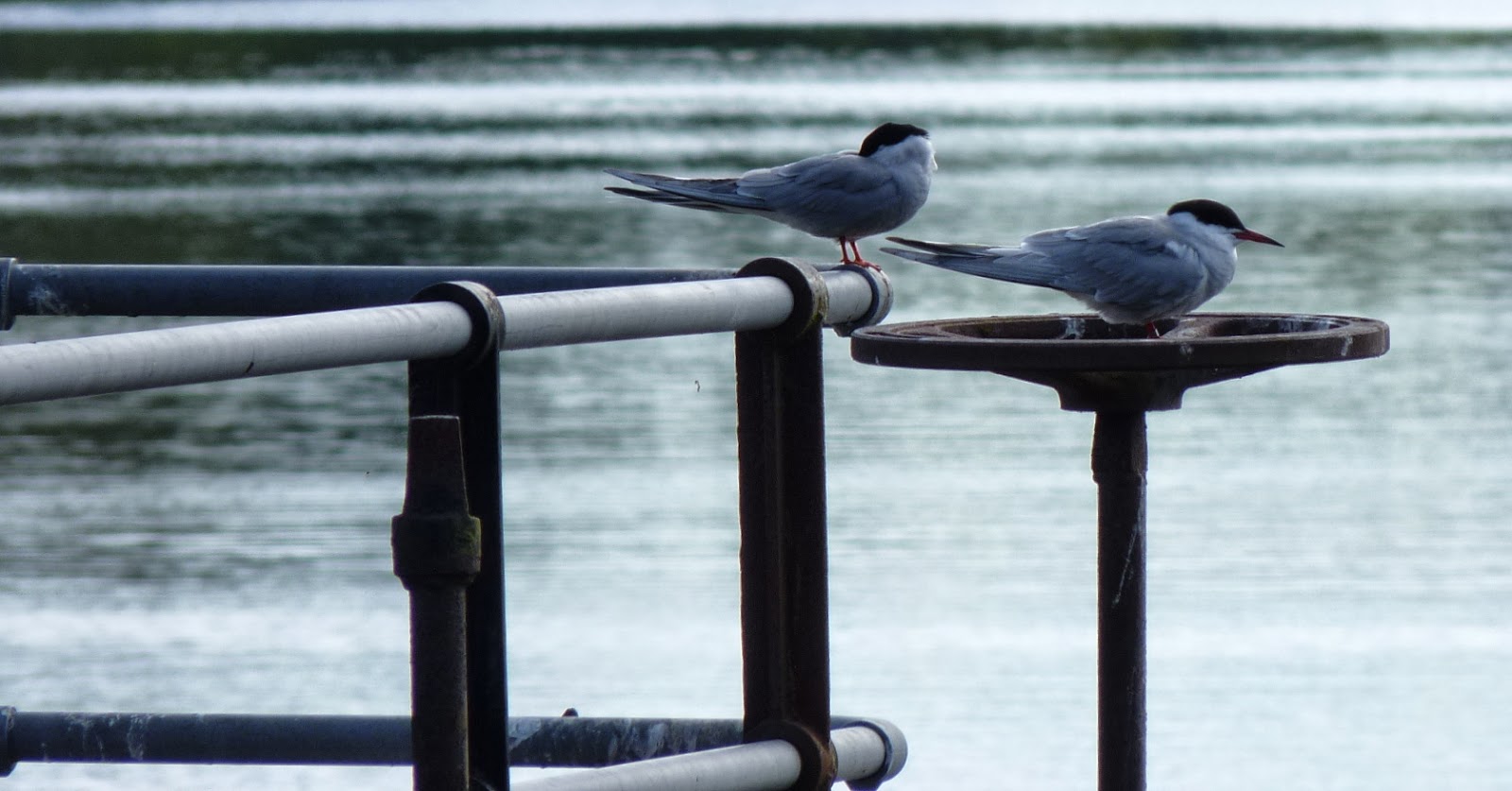I am still in Malawi and this is another post I made before I left Northern Ireland and I am sure by now the Terns are all speeding back to Africa now, however I hope you enjoy seeing and learning a little bit about these lovely birds.
I decided to show you the Common Tern ( Sterna hirundo). It has a circumpolar distribution and can be found breeding in most of Europe, Asia and North America except the extreme north and south. It winters further south, being found along the coast and inland of South America down to the Falkland Islands (Islas Malvinas), along the coast of Africa excluding the north, along parts of the Arabian Peninsula and the whole coast of India, and throughout much of south-east Asia and Australasia (excluding New Zealand).
I decided to show you the Common Tern ( Sterna hirundo). It has a circumpolar distribution and can be found breeding in most of Europe, Asia and North America except the extreme north and south. It winters further south, being found along the coast and inland of South America down to the Falkland Islands (Islas Malvinas), along the coast of Africa excluding the north, along parts of the Arabian Peninsula and the whole coast of India, and throughout much of south-east Asia and Australasia (excluding New Zealand).
As you can see breeding adults have light grey upper parts,
white to very light grey underparts, a black cap, orange-red legs, and a narrow
pointed bill. Depending on the subspecies, the bill may be mostly red with a
black tip or all black.
The Common Tern nests on any flat, poorly vegetated
surface close to water, including beaches and islands, and it readily adapts to
artificial substrates such as floating rafts. The nest may be a bare scrape in
sand or gravel, but it is often lined or edged with whatever debris is
available.
Up to three eggs may be laid, their dull colours and
blotchy patterns providing camouflage on the open beach.
Incubation is by both sexes, and the eggs hatch in
around 21–22 days, longer if the colony is disturbed by predators. The downy
chicks fledge in 22–28 days.
Like most Terns, this species feeds by plunge-diving
for fish, either in the sea or in freshwater, but molluscs, crustaceans and
other invertebrate prey may form a significant part of the diet in some areas.
I am linking this post with Tex’s GOOD FENCES
Thanks you for visiting and also to those who leaves
comments on any of my posts.










They are lovely sea birds, I like their uptilted tails.
ReplyDeleteThese are amazing long distance travellers Margaret. Not seen so many this summer in my area.
ReplyDeletehandsome birds! thanks, margaret!
ReplyDeleteVery nice. Thank you for sharing these guys.
ReplyDeleteGreat photos of the TERNS, Margaret... I'm sure you will miss them when they are gone.... BUT--they will be back!!!! Right?
ReplyDeleteHugs,
Betsy
Impressive shots of the terns.
ReplyDeleteGorgeous photos of these beautiful birds! Very unique fence too!
ReplyDeleteA great day to be on the water! Tweet, tweet!
ReplyDeleteLove learning about new things. These terns are so pretty and your really got some great shots of them sitting on the fence. I enjoyed this post very much.
ReplyDeleteLovely birds, thanks for sharing pics and information!
ReplyDeleteLovely birds, thanks for sharing pics and info about them. Have a great weekend!
ReplyDeleteThese pictures are great, and I love their black caps! I also enjoy the shots of the one that is hunkered down.
ReplyDeleteTo every season there is a tern...
ReplyDelete~
Nice shots of these pretty birds.
ReplyDeleteWe have many different varieties in Texas , but nothing to compare to these.
ReplyDeleteMargaret,
ReplyDeleteThese guys are quite beautiful.
Enjoy your vista to Malawi.
Peace :)